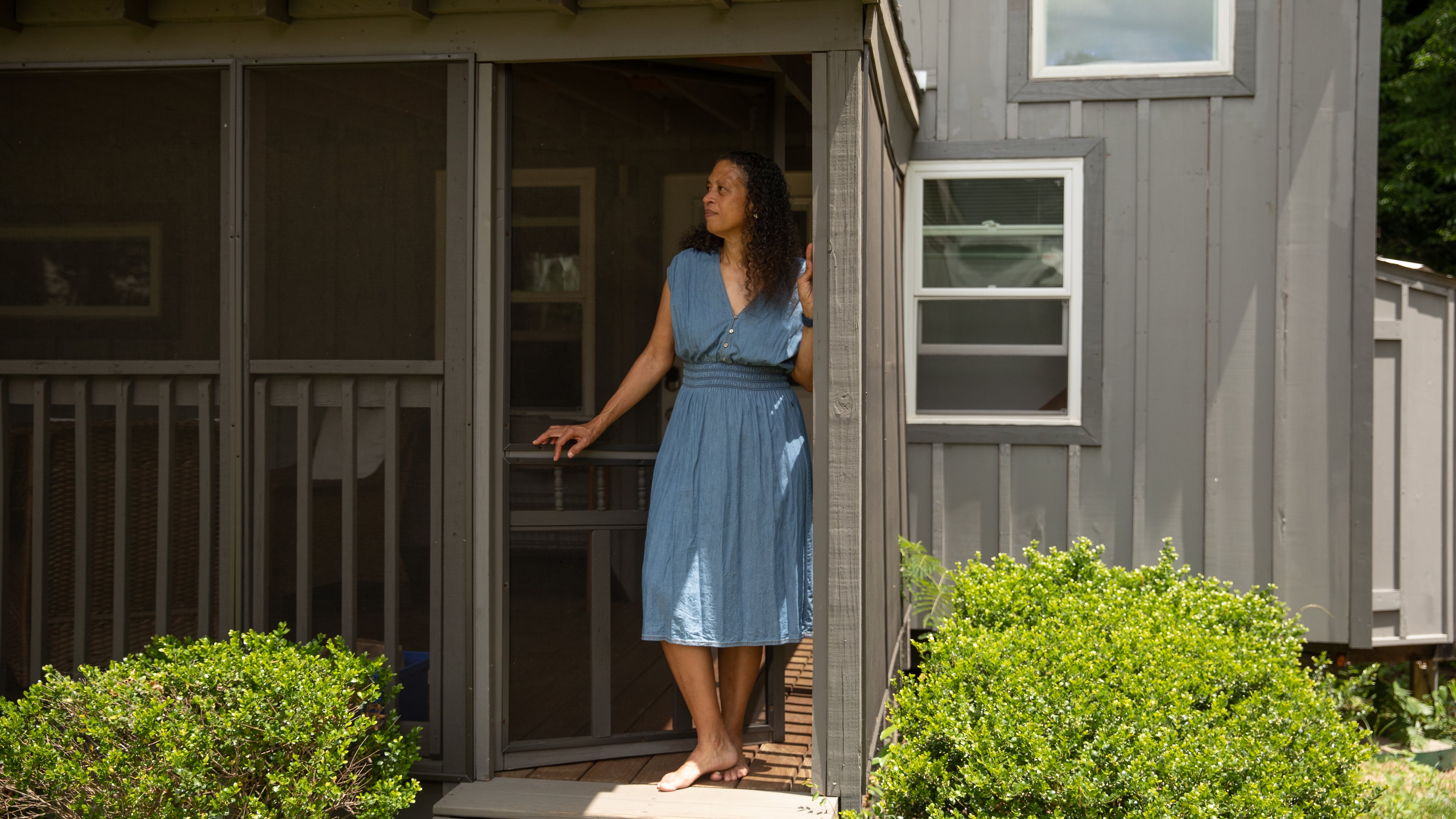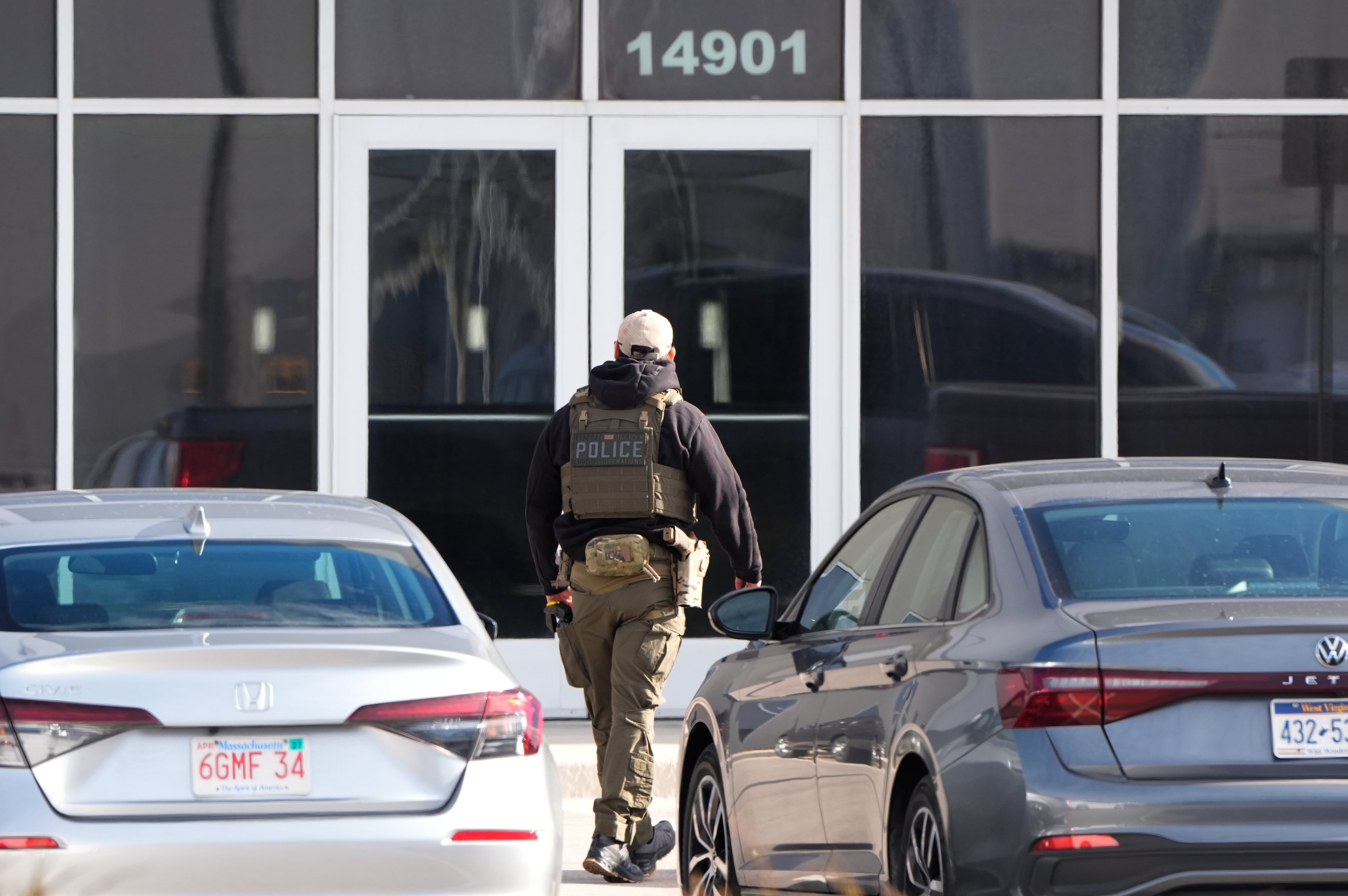Inside Atlanta’s long-term debate over short-term rentals

Nadia Giordani’s cozy 300-square-foot Airbnb in her Cabbagetown backyard was first made a reality in 2017, when her dream to build a tiny home was featured on the reality TV show “Tiny Home, Big Living.”
Giordani and others interested in the endeavor at the time had to advocate for the Atlanta City Council to change zoning laws to allow for “accessory dwelling units,” or tiny houses, in backyards of existing homes.
“It was from the days of slavery when liberal whites in the city would allow freed slaves to come live in their garages or structures in their backyards,” she said. “We all fought and went to City Hall, and they took (the restriction) off the books.”
For the eight years since, Giordani has been able to supplement her income, help her daughter through college and cover rising property taxes by renting out her tiny home on apps like Airbnb and Vrbo.
But the legislative hurdles she faced in 2017 weren’t the end of city rules that short-term rental owners say muddied their operations. Atlanta’s lawmakers have, for years, attempted to set regulations around the industry as part of an effort to curb unruly party houses and rental takeovers of single-family neighborhoods.
Debate over regulations is heightened by the city’s reliance on short-term rentals to bolster its tourism industry. And with the 2026 FIFA World Cup on the horizon, tens of thousands of visitors expected to flock to the city will need places to stay when hotel rooms fill up.
Owners say they worry about the fate of their businesses while the Atlanta City Council mulls more legislative changes — like a distance requirement between rentals (both 1,000- and 2,000-foot minimums have been floated) and a cap on the number allowed in multifamily buildings.
Current short-term rental owners would be exempted from the new rules — but only if they’ve previously obtained a permit with the city.

Giordani said short-term rental owners like herself support the city’s current requirement that owners need to apply for a permit — although lawmakers and residents alike agree that enforcement is an issue.
“It meets the goal of affordable housing, aging in place and not causing havoc to the neighborhoods,” she said. “But now the city is going to the extreme. We have a great law; why are we doing this? I am not understanding.”
The other side of the argument is that some longtime Atlanta residents say they’ve watched their neighborhoods be lost to absentee landlords who run short-term rental businesses from afar. Some communities have even championed changes that go as far as banning the business in their neighborhoods.
“Short-term rental is the best thing that happened to some, and it’s the worst thing to happen to others,” said Council Member Byron Amos, who represents a district adjacent to Mercedes-Benz Stadium. “It’s time that we address this as a city.”

Tourism pitted against affordable housing
Atlanta is known for its tourism industry that boasts massive conventions, high-profile sporting events and major political gatherings. Next summer, Georgia’s capital city will host an international soccer tournament when the 2026 FIFA World Cup kicks off.
And the challenge of hosting an international event technically already started when the FIFA Club World Cup soccer games brought teams to Atlanta from Abu Dhabi, England, Mexico and Portugal.
Rich Munroe, president of the Atlanta Metro Short Term Rental Alliance, said the stakes are increasing as the city struggles to implement clear and effective regulations.
“The longer we drag this out, the more we risk potentially having some missteps,” Munroe said.
“When you have these large events that come into town, what tends to happen is folks want to throw their house up there for a week or two to make some extra money,” he said. “The unfortunate thing is there’s no real guidance, there’s no best practices, there’s no oversight for that.”
In 2023, Airbnbs in metro Atlanta hosted around 1.4 million guests, according to data from the company. But hosts say it’s not always profitable and that Atlanta’s back-and-forth over regulations has hurt the industry overall.

Lora Clemens and Peter Usher both bought properties in Atlanta’s West End — initially to rehab and sell, until the housing market forced them into the short-term rental business.
“I never intended to be in the Airbnb business at all,” Usher said. “Some months are better than others. I can’t say it’s been a home run every month.”
The pair’s rental properties are only a couple blocks from each other, near the Beltline’s Westside trail. The 1,000-foot distance requirement between short-term rentals being considered by the city could pit them against each other.
“How are they going to say: ‘OK, you get to stay, but you can’t,’” Clemens said. “I’m not sure how the distance can be regulated correctly and efficiently.”
Michael Harvey, a Grant Park resident who renovated his basement to use as a short-term rental, shared the same concern during a public hearing on the proposed regulations.
“I live across the street from an amazing neighbor who also rents out the back of their house,” he told Atlanta City Council members. “Maybe you can come over and referee a fight to the death and see who gets the license. But I think we can come up with a better solution than that.”
The proposed buffer zone and percentage cap in multifamily buildings aim to prevent the industry from taking over neighborhoods and pricing out legacy residents.
“Larger investment groups and organizations are the ones who are really the problem when it comes to the issues we’re having around short-term rentals,” Amos said. “And we’re in a national crisis for affordable housing.”

Single-family homeowners who rent on their property, like Giordani, see it differently. As property taxes have skyrocketed in her popular Cabbagetown neighborhood, she says her tiny rental has helped her keep her home.
“A lot of people cannot age in place anymore, and I didn’t want that to be me,” she said. “The combination of being able to have an extra income to help me pay my taxes and help me afford to stay in my neighborhood was very inviting.”
Overrun neighborhoods wait years for change
Some residents in Atlanta want to ban standalone short-term rental businesses altogether. The Home Park neighborhood has been pushing for one as the city council debate has dragged on.
In the west side community — which sits adjacent to the Georgia Institute of Technology — residents say they have been battling a short-term rental takeover of their neighborhood for years.
Kathy Boehmer, president of the Home Park Community Improvement Association, said the area has been flooded with both new and renovated rental properties to the extent that many longtime residents are now surrounded on all sides.
“We don’t want these short-term rentals in the neighborhood anymore — there’s too many of them,” she said. “They’ve had a significant impact on the look and the feel of our neighborhood.”
Some neighbors living next to short-term rental properties don’t let their children play in the backyard without supervision, Boehmer said. Others are burdened by unruly parties that go throughout the night or domestic violence disputes that require law enforcement response, she said.
“It is affecting property values, and it is affecting people’s quality of life,” Boehmer said.
And for students at the nearby university, off-campus housing options have dwindled.
“I get phone calls or emails from students at Georgia Tech saying that there’s no housing around campus,” Amos said. “Now these houses have become short-term rentals instead of student housing.”

In March, the fierce battle over short-term rental regulations that had lain dormant for more than a year suddenly reignited inside City Hall.
Atlanta’s lawmakers implemented regulations in 2022 that required a permit to operate, but very few applied, and enforcement of the rules has fallen flat.
As of May, only around 2,200 people have applied for the license, while thousands more operate rentals without.
The city even once tried to require property owners who operate short-term rentals in Atlanta to live in Atlanta — a move that rental advocates and companies say would not stand up in court.
A federal court of appeals ruling in New Orleans in 2022 determined that a residency requirement to operate a short-term rental is unconstitutional.
Kathy McClure, vice president of the Atlanta Metro Short Term Rental Alliance, said the city should consider a cap on the number of units allowed in the entire city rather than distance requirements.
“We believe there should be a different kind of limit,” McClure said.
In April, the City Council passed an updated “party house” ordinance that cracked down further on commercial uses of residential neighborhoods. But the debate over how best to regulate short-term rentals has stalled again until later this year.


